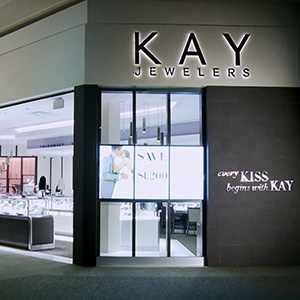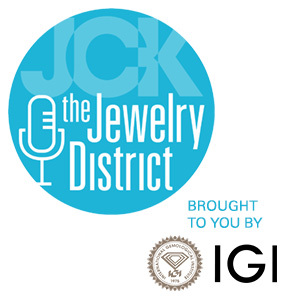
Signet’s sales for the first quarter of 2023 (ended April 30) hit $1.8 billion, up nearly 9% from last year.
Comps rose 2.5% over the same period.
Sales in its North American division (U.S. and Canada) rose 5.4% in the quarter. Its U.K. division also showed strong results, with sales jumping 92% to $110 million.
Non-GAAP operating income was $194.6 million, or 10.6% of sales—down from $168.9 million, or 10% of sales, recorded in the prior year’s first quarter.
Signet also maintained its guidance for the rest of the year, which cheered analysts and caused its stock to rise.
In a conference call following the release of its financial results, CEO Gina Drosos said that “February traffic was up compared to last year,” but traffic fell in March, due to the lack of government stimulus, heightened inflation, and the war in Ukraine.
Chief financial officer Joan Hilson said on the call that “all banners delivered their strongest growth at price points above $3,000 in both bridal and fashion.”
Bridal sales were mostly “wedding and anniversary bands, reflecting this year’s 40-year high watermark for weddings,” she said, according to a SeekingAlpha transcript. Engagements, however, are “expected to return to pre-pandemic levels.”
In fashion, Signet saw growth in gold, “with particular strength at higher price points,” as well as growth in repair services, an increasing focus for the company, she said.
Drosos said she expected jewelry to continue to perform well, even if the economy goes into a recession.
“There are still important and meaningful events that customers want to celebrate,” she said. “It’s a product that has strong material value, the gemstones, the diamonds, the precious metals hold their value. And customers see and recognize that.”
Drosos noted that two-thirds of its customers now interact with it virtually before they purchase.
“I don’t think there’s any question now that connected commerce is the future of jewelry,” she said. “This is a category that was slow to move to virtual sales. But we’ve been leading the effort.”
Signet also announced it is paying $175 million to settle a nearly 15-year-old gender bias suit that was headed to class arbitration. The claim alleged that some 68,000 female employees in its Sterling Jewelers division were paid less than men in similar roles.
A joint statement said that approximately $125 million will go to the class members (about $1,800 each), while the remaining $50 million will go to its class counsel, Cohen Milstein Sellers & Toll.
While the claims didn’t involve sexual harassment, the suit did uncover some troubling allegations, which were spotlighted in news stories in 2019 and 2017.
Lead class counsel Joseph Sellers did not return a request for comment.
The case dragged on so long because the parties squabbled over the issue of whether class actions are appropriate for arbitration.
In the statement, Sellers said that “this settlement provides for significant monetary relief for our clients and ensures that the practices that gave rise to this case will not recur. And we applaud Sterling Jewelers for undertaking important and meaningful changes to its workplace policies, which have moved it forward as a leader in gender equality.”
In the same statement, Drosos said that “for the past four years, we’ve been successfully transforming Signet’s business model and culture…to create a welcoming and inclusive environment where everyone is invited to be their authentic self.”
Photo courtesy of Signet Jewelers
- Subscribe to the JCK News Daily
- Subscribe to the JCK Special Report
- Follow JCK on Instagram: @jckmagazine
- Follow JCK on X: @jckmagazine
- Follow JCK on Facebook: @jckmagazine





